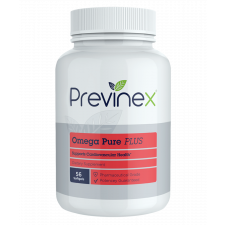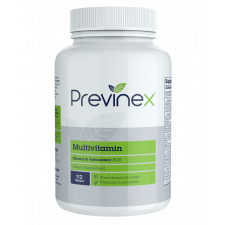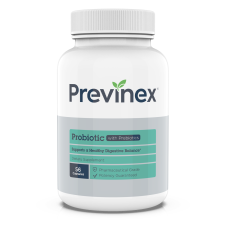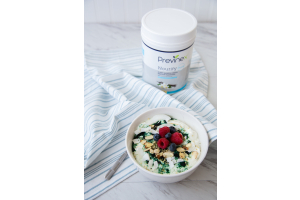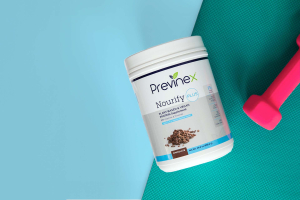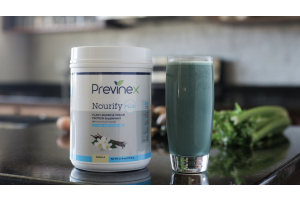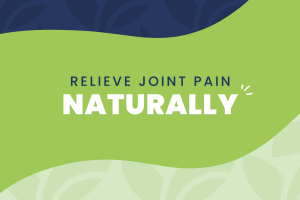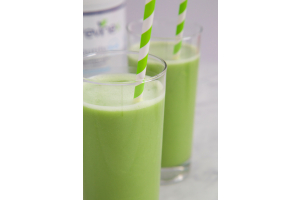
A Multivitamin is an excellent complement to a well-balanced diet and a great source of critical vitamins, minerals and antioxidants - many of which you're likely not getting on a regular basis through your diet alone.
But, how do you know you're taking the right one? One that actually provides the health benefits it claims on it bottle or in it's commercial? Quite frankly, there are a lot of vitamins on the market that do not provide the health benefits they claim, and these are many of the vitamins you see on TV, and find on the shelf everyday at your local pharmacy, big box store or grocery store.
When faced with the decision of choosing a high quality multivitamin, do you know what to avoid?
Well, we're here to help. Here are 4 Things to Avoid When Buying a Multivitamin:
1) Avoid Fillers:
It is very common for supplement companies to add fillers to their products. There are numerous reason why fillers are added to products:
- Easier and faster production
- Products are more appealing to the eye (colorants)
- Easier to swallow (coatings)
- Companies save money by using fillers and other cheaper ingredients
But, fillers have an impact on your body and health, and it's not a positive one. By design, our bodies require macronutritients (proteins, carbs, and fats) and micronutrients (vitamins, minerals, and antioxidants). Additives and fillers are neither, and your body has no physiological use for them. Fillers also can block the absorption of nutrients, rendering the product you spent your hard earned money on to protect your health basically useless.
If your multivitamin contains fillers that block the absorption of the nutrients, then you're essentially wasting your money!
3 Common Fillers Used By Supplement Companies That Are Dangerous And You Should Avoid:
- Hydrogenated Oils
- Artificial Colors
- Titanium Dioxide
If you see any of these ingredients in the "other ingredients" section on the back of your vitamin, it's time to look for a new one!
2) Avoid "Food Grade" Multivitamins...If your vitamin is not Pharmaceutical Grade, leave it on the shelf:
Most vitamin supplements on the market are produced at "food grade" standards, which have minimal-to-no testing requirements of both the raw materials and the finished product. Only a handful of companies voluntarily produce vitamin supplements at pharmaceutical grade levels, which is a MUCH higher standard.
Pharmaceutical grade manufacturing protocols ensure that what's listed on the bottle actually exists in the product. It also ensures that the product will break down and absorb in your body within a specific period of time.
Not convinced yet? Check out this New York Times article on food grade supplements sold at traditional retailers such as Walgreens, GNC, Target, and Walmart (hint: the supplements that were tested not only didn't have several ingredients listed on the bottle, but they had other potentially harmful ingredients that were not listed).
When it comes to your health, is it worth taking a chance on food grade supplements? We obviously don't think so!
3) Avoid Multivitamins That Use Specific Ingredients:
A multivitamin is only as good as the underlying ingredients in the product. This can be one of the most confusing parts of choosing the right product, as there are a number of forms of various vitamins, minerals, and antioxidants come in, and they're not all created equal.
One example is vitamin E. Vitamin E is primarily baked into multi vitamins in two forms - natural vitamin E (d-alpha tocopherol, d-alpha tocopheryl acetate, d-alpha tocopheryl succinate) and synthetic vitamin E (dl-alpha tocopherol, etc.). The "dl" in the equation indicates synthetic.
The studies are crystal clear that you want natural vitamin E vs. synthetic. However, many companies add the synthetic form as it's less expensive.
Here are some other examples to be weary of:
Vitamin C as ascorbic acid vs. mineral ascorbates: Studies show that ascorbic acid is more harsh on the body and less bioavailable than mineral ascorbates, which the body can readily absorb. Of course, ascorbic acid is much less expensive.
Look for vitamin A as beta-carotene: This has less to do with quality and more to do with toxicity. Vitamin A is traditionally delivered as retinol, retinyl acetate, retinyl palmitate. These are "pre-formed" vitamin A, which carry high toxicity risk when consumed at high levels. Beta-carotene is "pro-vitamin A", which means that the body only uses what it requires, which eliminates potential toxicity issues.
4) Avoid Multivitamins That Do Not Provide A Breadth of Ingredients:
Unfortunately, whether it's eating habits where people eat the same fruits and vegetables over and over again, or do not get enough fruits and vegetables in their diet, the fact remains that it's impossible to eat your way to the vast spectrum of vitamins, minerals, and antioxidants that are key to long-term health.
That's why we call vitamins nutritional "supplements" - they supplement your diet to ensure that you're getting proper breadth of nutrients.
At a minimum, a good multi vitamin should contain the following:
- Vitamin A
- Vitamin C
- Vitamin D
- Vitamin E
- Vitamin K
- Thiamin
- Riboflavin
- Niacin
- Vitamin B6
- Folate
- VitaminB12
- Biotin
- Calcium
- Iodine
- Magnesium
- Zinc
- Selenium
- Copper
- Maganese
- Chromium
- Molybdenum
- Boron
- Vanadium
- Silicon
- Trace minerals (in chelated forms)
- Bioflavanoids
- Inositol
- N-Aceytl-L-Cysteine
- Coenzyme Q10
- Alpha-Lipoic Acid
- Lutein
- Lycopene
The Bottom Line:
Many companies rely on the fact that consumers have no background in nutritional science to sell products of poor quality, but armed with this information, you can begin to evaluate whether you're buying or taking products that are beneficial and can promote optimal health benefits.

